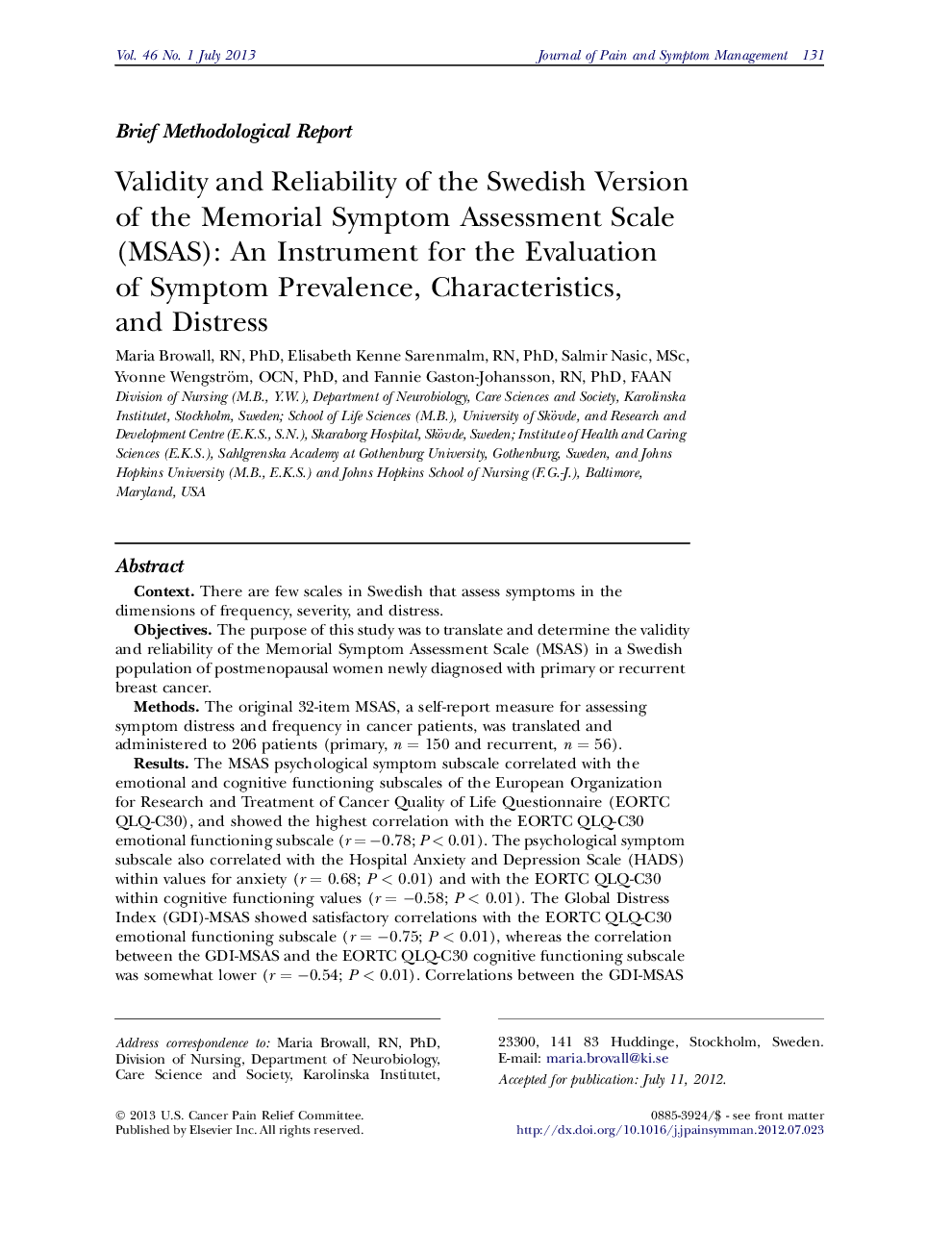| کد مقاله | کد نشریه | سال انتشار | مقاله انگلیسی | نسخه تمام متن |
|---|---|---|---|---|
| 2729782 | 1147178 | 2013 | 11 صفحه PDF | دانلود رایگان |

ContextThere are few scales in Swedish that assess symptoms in the dimensions of frequency, severity, and distress.ObjectivesThe purpose of this study was to translate and determine the validity and reliability of the Memorial Symptom Assessment Scale (MSAS) in a Swedish population of postmenopausal women newly diagnosed with primary or recurrent breast cancer.MethodsThe original 32-item MSAS, a self-report measure for assessing symptom distress and frequency in cancer patients, was translated and administered to 206 patients (primary, n = 150 and recurrent, n = 56).ResultsThe MSAS psychological symptom subscale correlated with the emotional and cognitive functioning subscales of the European Organization for Research and Treatment of Cancer Quality of Life Questionnaire (EORTC QLQ-C30), and showed the highest correlation with the EORTC QLQ-C30 emotional functioning subscale (r = −0.78; P < 0.01). The psychological symptom subscale also correlated with the Hospital Anxiety and Depression Scale (HADS) within values for anxiety (r = 0.68; P < 0.01) and with the EORTC QLQ-C30 within cognitive functioning values (r = −0.58; P < 0.01). The Global Distress Index (GDI)-MSAS showed satisfactory correlations with the EORTC QLQ-C30 emotional functioning subscale (r = −0.75; P < 0.01), whereas the correlation between the GDI-MSAS and the EORTC QLQ-C30 cognitive functioning subscale was somewhat lower (r = −0.54; P < 0.01). Correlations between the GDI-MSAS and the HADS anxiety subscale were confirmed (r = 0.62; P < 0.01), and a correlation between the MSAS physical symptom items and symptom items in the EORTC-QLQ-C30 was evident (r = 0.60–0.85; P < 0.01). Cronbach's alpha coefficients for the MSAS and MSAS subscales based on symptom scores ranged from 0.80 to 0.89. The internal consistency at different time points was satisfactory, ranging from 0.86 (baseline) to 0.90 (follow-up).ConclusionThe Swedish version of the MSAS presents as a valid and reliable measure for assessing symptom distress, severity, and frequency in Swedish patients diagnosed with primary and recurrent breast cancer.
Journal: Journal of Pain and Symptom Management - Volume 46, Issue 1, July 2013, Pages 131–141